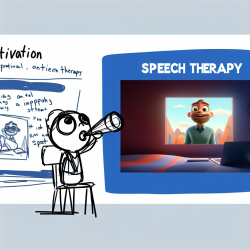In the realm of special education, accurate assessment tools are crucial for identifying and addressing behavioral challenges among young children. The research article "Psychometric Properties of the Behavior Assessment System for Children Student Observation System (BASC-3 SOS) with Young Children in Special Education" sheds light on the efficacy of the BASC-3 SOS as a systematic direct observation (SDO) tool. This blog aims to guide practitioners on leveraging the insights from this study to improve their skills in behavior assessment and intervention planning.
Understanding BASC-3 SOS
The BASC-3 SOS is designed to measure various classroom behaviors through a combination of Likert scale ratings and momentary time sampling. It categorizes behaviors into Adaptive (e.g., Response to Teacher/Lesson) and Problem Behaviors (e.g., Inappropriate Movement). The study involved 135 children, predominantly Latinx, aged 20 to 67 months, many with developmental disabilities.
Key Findings
- Inter-Rater Reliability: Moderate to good reliability was observed for most behaviors, although some, like Transition Movement and Aggression, showed lower reliability.
- Test-Retest Reliability: Significant correlations were found between behavior scores at different time points, particularly for Adaptive Behaviors in large group settings.
- Convergent and Divergent Validity: The study found moderate correlations between BASC-3 SOS scores and teacher ratings, indicating the tool's meaningfulness in capturing classroom behavior.
- Predictive Validity: Positive correlations were observed between initial BASC-3 SOS scores and teacher ratings several months later, highlighting the tool's ability to forecast future behavior.
- Discriminant Validity: Children with disabilities exhibited higher Problem Behavior scores and lower Adaptive Behavior scores compared to those without disabilities.
- Treatment Sensitivity: No significant changes in behavior were observed post-intervention, suggesting limited sensitivity to behavioral improvements over a short period.
Implications for Practitioners
For practitioners, the mixed evidence from this study suggests a nuanced approach to using the BASC-3 SOS:
- Intervention Planning: Use the tool to identify specific behaviors for targeted interventions, especially those with high inter-rater reliability.
- Multi-Method Assessment: Combine BASC-3 SOS with other assessment tools like teacher and parent rating scales for a comprehensive understanding of a child's behavior.
- Setting-Specific Observations: Consider the activity setting when interpreting behavior scores, as behaviors may vary between large and small group activities.
- Training and Calibration: Ensure thorough training and periodic calibration of observers to maintain high inter-rater reliability.
Encouraging Further Research
The study underscores the need for further research to enhance the psychometric properties of the BASC-3 SOS, particularly in diverse populations and younger age groups. Future studies should focus on refining behavior definitions, exploring content validity, and determining the optimal number of observations for reliable behavior measurement.
To read the original research paper, please follow this link: Psychometric Properties of the Behavior Assessment System for Children Student Observation System (BASC-3 SOS) with Young Children in Special Education.










